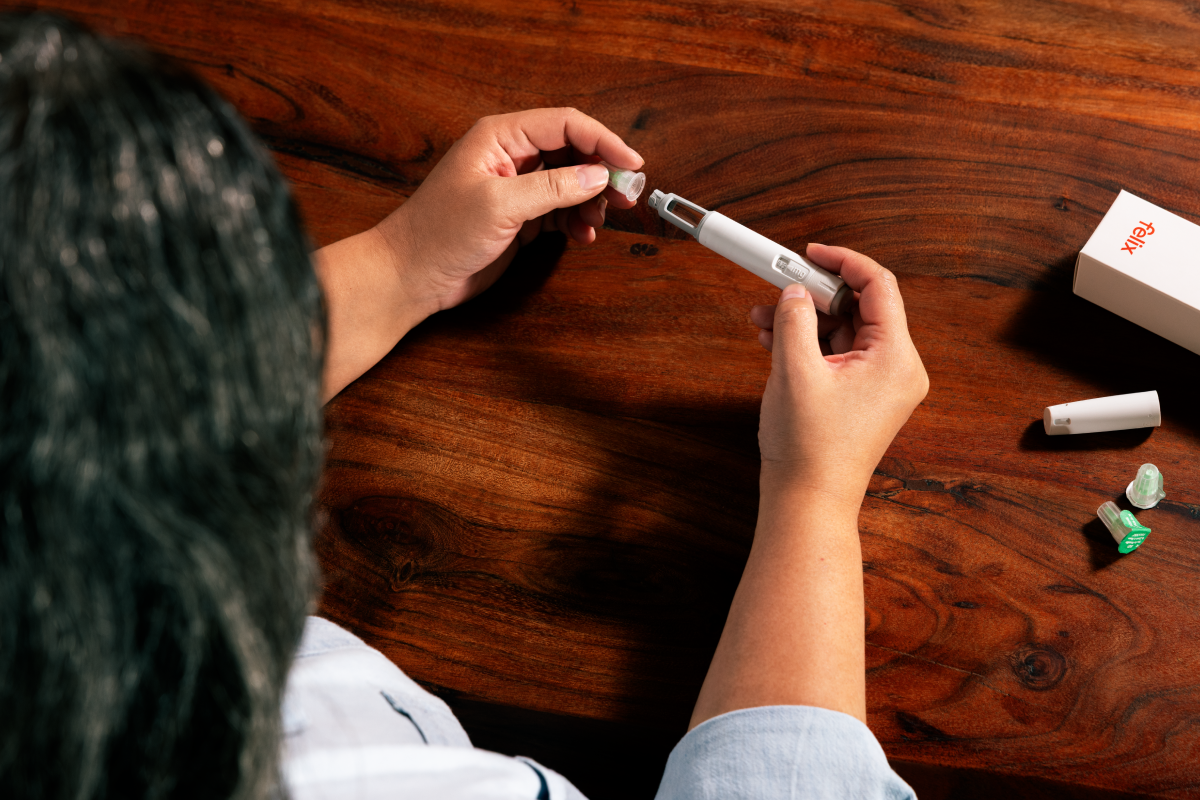Download the Felix App
Earn reward, visit our shop and get exclusive offers on the app
Download nowEarn reward, visit our shop and get exclusive offers on the app
Download nowPut your health first in 2026 with free visits on all categories, and $200 off longevity testing.
Download nowPut your health first in 2026 with free visits on all categories, and $200 off longevity testing.
Download now
AI-generated summaries may be inaccurate and do not constitute medical advice. Third-party AI tools are not under Felix's control, and your use of them is at your own risk.
The fact is losing weight doesn’t have to be a restrictive and painful process. Sustainable and gradual weight loss is the key to long-term success. To do that, you need patience, persistence, and a willingness to grow.
According to the Canadian Medical Association Journal, 61.3% of Canadian adults were overweight or obese in 2015. The number of people who struggled with obesity went up from 2004 where it was 23.1%.
The results of a recent survey by Ipsos reveal an alarming truth — many women in Canada want to lose weight. Eighty percent of participants stated they wanted to lose weight, and almost 3,000 Canadian women participated in the survey.
So, whether you're looking to improve your health, boost your confidence, or feel your best, the article below can help.
Many people, especially the youth, often resort to “extreme” weight loss diets to get rid of the excess weight in a hurry. These diets promise dramatic and rapid results. This makes them a popular choice, mainly during the summer period.
But, these extreme diets are either deficient in fat or carbs or calories and have unbalanced meals that lack nutrients, vitamins, and minerals. Unfortunately, when people go off fad diets, they regain most of that weight. This is usually because the restriction required for these diets is not maintainable in the long-term.
Additionally, your body responds to these diets by changing your metabolism so that it requires more and more restriction in order to maintain the weight you’ve lost. And many need to pay more attention to the risks of losing weight too quickly.
So, what do we mean by unhealthy weight loss? It means risking your health and well-being to pursue quick fixes and fad diets that promise fast results. This increases the odds of long-term consequences and side effects from this type of rapid weight loss.
If you’re considering a quick-fix weight loss plan, check the risks below. They provide an in-depth look at the potential health consequences of rapid weight loss. And of course, always consult your healthcare practitioner when considering any new diet.
Loose skin can be a problem for anyone who loses significant weight, regardless of how long it takes to lose it. But, losing weight quickly increases the odds of developing excess skin.
Research shows that losing over 100 pounds (45 kg) can leave you with a significant amount of hanging loose skin and tissue. This amount of excess skin can only be removed with surgery.
Hanging skin happens because the skin has a limited capacity to shrink after being stretched. When you put on a few extra pounds, the skin expands to accommodate the additional body mass. But, when you lose it rapidly, the skin might be unable to keep up with the pace of your weight loss journey. Therefore, you can end up with saggy and loose skin.
Also, losing weight too fast through crash diets or other extreme weight reduction methods can prevent the body from building muscle. This can exacerbate the appearance of loose skin.
The ability of your skin to regain its elasticity is quite variable, but is often more difficult as you get older, have more health conditions, and if your skin is stretched more. Remember that regardless of how fast you lose weight, if you lose a large amount of weight (e.g. 100 lbs or more), you’ll likely end up with some degree of loose skin even if you are otherwise healthy and young.
Rapid weight loss causes the body to break down muscle tissue to get more energy when its not getting enough nutrients. This can lead to muscle loss. For people who have overweight, roughly 20% to 30% of the total weight loss is muscle mass.
Muscle loss can cause a number of problems. When you don’t maintain proper muscle mass, your:
Your muscle mass is like a powerhouse that fuels the body’s fat and calorie-burning mechanism. It plays a fundamental role in your overall health, providing you with benefits such as increased endurance, strength, immune function, energy levels, and decreased stress.
Building more muscle mass can often help you to maintain optimal metabolic function, burn more calories, and achieve a leaner body.
Weight loss is supposed to reduce the risk of gallstones. But, if you lose the weight too quickly (e.g. more than 1.5 kg or 3.3 lbs per week) and you have an excessive reduction in weight (e.g. more than 25% of your body weight), then there’s an increased likelihood that you’ll form gallstones, according to a study published by Visceral Medicine.
When you’re starving the body, restricting calories for a long time, or are going overboard with exercising, the liver can release more cholesterol into the bile. Rapid weight loss can also hinder the gallbladder’s ability to empty itself properly.
Other factors may increase your odds of having gallstones after a crash or low-calorie diets, and weight reduction surgery. These include:
By taking your time and gradually losing excess weight, you can decrease your chances of getting gallstones.
People who are looking for the fastest way to lose weight may fail to notice what it could do to their liver. On a low-calorie diet, you’re less likely to get adequate vitamin B12, folate, and iron from the foods you eat.
Depriving the body of adequate calories and nutrients puts stress on the liver and other organs. It may cause impaired immune function, increased fatigue, and you may experience many other problems, such as brittle nails and hair loss.
Studies show that losing weight quickly may lead to malnutrition and cause inflammation in the liver. For those who already struggle with a condition known as steatohepatitis, vitamin and mineral deficiencies can worsen the symptoms. If left untreated, this condition can lead to liver failure in a relatively short time.
The amount of weight loss that is considered concerning depends on your overall health, starting weight, and rate of weight loss. In general, losing 1-2 lbs (0.4-1kg) per week is a healthy weight management goal.
Losing more than this amount could be worrisome, especially if it happens rapidly and especially if you aren’t trying to lose weight. Keep an eye on these symptoms if you think you’re losing weight too fast and talk to a healthcare practitioner if you experience any of these symptoms.
In general, rapid reduction in weight means losing more than one to two pounds (0.4 to 1 kg) a week. For example, if you weigh 200 pounds (over 91 kg) and lose 10 pounds (4.5 kg) in one week, this is fast weight loss.
Rapid weight loss is not recommended as a sustainable and healthy way to lose weight. There are very few situations or medical conditions where losing weight quickly is indicated. Occasionally this may be required in advance of certain surgical procedures, for example, but if this is the case, you’d be doing this only with the help and direction of your healthcare practitioner.
There are no easy tips or tricks to losing weight, but there are some healthy behaviours that may help you on your weight management journey. Here are a few things that you can do that may help with your weight and overall health:
If you want to see if weight loss treatment may be an option for you, start an online visit with Felix today.
Medically reviewed by
References




























